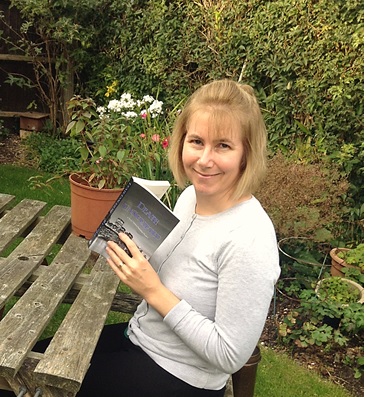About Reviewing
How did you get started?
I’ve always loved reading and decided to start blogging to combine my reading with spying on a need to keep up with my teenagers on social media.
How do you review a book? Is it a read first, and then make notes, or do you make notes as you go along?
When I read a book for review purposes I make notes as I go along.
What are you looking for?
I like a story with deep layered characters that create emotions in the reader, plus a believable setting and plot. If I learn something new it is an added bonus.
If a book has a great plot, great characters, but the grammar is less than perfect, how do you deal with that?
I like to praise the good points in a book, however, if I feel that there are too many grammatical errors, I will say so. If authors expect the public to pay for their work, then they need to offer them a good product.
How long does it take you to get through, say, an eighty thousand-word book?
An eighty thousand word book is between 300 and 350 pages, depending on font size and print layout. If the book fits my criteria for a great read, then I can read that in just one day.
How did you come up with your rating system, and could you explain more about the rating system?
As I post my reviews on Goodreads and AmazonUK, I let their star rating systems be my guide. However, the rating bands can be quite broad, so I also use half star ratings and round up or down on both sites.
What advice could you give to authors looking to get their books reviewed?
Never copy and paste a review request across multiple reviewer submission forms, as it offends reviewers. Always use a reviewer’s name when submitting your book and treat them with respect. Avoid attempts at humour and don’t ‘big up’ your achievements. Be professional and polite.
Do you get readers emailing you and thanking you for a review?
I get a mix; some e-mail, some thank me on Twitter or my blog review post. I would encourage authors to thank reviewers. I never ‘trash’ a book on my blog, but some reviews contain constructive criticism, however, not all authors will agree with what has been said, so I don’t ‘expect’ thanks, but it is lovely when they do.
My advice to authors on getting a ‘bad’ review (hasten to add that might mean a perfectly honest, well written, fair review – just bad from the author’s point of view) is to take what you can from it and move on. Under no circumstances to ‘argue’ with the reviewer – would you agree with that?
Yes! Even if the reviewer has said something that is incorrect about the book. If an author has asked for a review then it is better to graciously accept that not everyone will like their work, than to react. The book community can seem quite small when an author gets a reputation for acting badly.
About Reading
We talk a lot about writing here on the blog, and possibly not enough about reading, which is after all why we’re all here. Why do you think people love reading? We’re seeing lots of statistics that say reading as a pastime is dying – do you think that’s the case?
People do read, and most read something every day, just think about the explosion of social media. But it is what they are reading and how they are reading that is changing with the digital age. Reading e-books on a variety of apps and products (I-pad, kindle, phones, laptops, watches etc) gives a reader more options and can be easier than carrying around a paperback or hardback.
I also believe that when they read is different. The fast pace of life encourages people to read more ‘on the go’, grabbing minutes while using public transport or while having a coffee. Then there are audio books, people can listen to them while travelling and this may be a trend which becomes more popular.
About Writing
What are the most common mistakes that you see authors making?
Publishing too soon! Not enough re-drafting and fine tuning of a story is one of the first mistakes that newer authors make, think 8-9 drafts at least. Then skipping on editing and proofreading by experienced professionals. No-one can edit or proofread their own work, they just don’t ‘see’ all of the errors, nor will getting your mum, wife, auntie, best friend or school English teacher to do it either.
We’re told that the first page, paragraph, chapter, is absolutely key in making or breaking a book. Agents typically request only the first five pages of a novel; what do you think about that? If a book hasn’t grabbed you by the first five pages, do you put it down?
Yes, I agree! I need a ‘hook’, something that has me asking a question about the story, characters or plot. Or sometimes being dropped right into a piece of action works too. All it needs to do is make the reader curious enough to want to read on. The first pages are not the place for scene setting, a dream or to introduce multiple characters.
What do I do if a book hasn’t grabbed me? If I’ve been asked to review, I will continue to read. If I’ve paid good money for the book, I would be very disappointed, but usually I’ve bought the book for a good reason, so I would hope that the author could redeem themselves, but it would most likely affect my rating.
Is there anything you will not review?
I need to sleep at night so I avoid most horror and I’m not a fan of epic fantasy, poetry or short stories.
About Publishing
What do you think of the oft-quoted comment that the “slush-pile has moved online”?
There was an interesting article (https://www.thebookseller.com/feature/slush-pile-goes-online -Liz Bury 2007) that talked about this. The digital publishing market is still moving forward and now that anyone can publish a book, the marketplace is very busy. I see lots of digital imprints from the larger book publishers opening alongside vanity press and small independent publishing houses. There is a lot of choice now for authors who want to publish their books, however, my biggest concern is for the quality of these books.
Do you think attitudes are changing with respect to indie or self-published titles?
There is a huge difference now, from when Amazon Kindle Direct Publishing (KDP) first launched self-publishing, in the quality of self-published books. Readers also want quality. However, the waters are muddied by a small number of vanity press and con-artists who take money from inexperienced writers and publish books that are of poor quality.
The good news is that there are some very good indie and self-published authors out there.
Do you have any ideas or comments on how the industry can ‘filter’ good from bad, aside from reviews?
With online purchasing of books, the number of reviews that a book has can influence buyers. However, the system is open to abuse; no one likes to be conned and no one likes to be bullied.
Information is one answer; keep talking about important topics. For instance vanity press; this is a viable route for some authors, but others need to be aware that anyone can start a publishing company, they don’t need to have any qualifications. We wrote about it here on my blog in an article titled: Writers: Are You Ready To Sign With An Independent Publisher.
End of Interview:
Visit Rosie’s site to check out her reviews.




4 responses to “Reviewer IndieView with Rosie Amber”